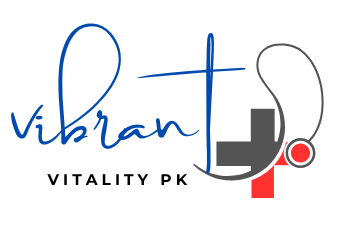The Science of Optimum Nutrition: 4 Ultimate Building Blocks for Optimum Health
Optimum Nutrition

In today’s fast-paced world, where processed foods and sedentary lifestyles are becoming the norm, maintaining optimum nutrition through balanced nutrition has become increasingly challenging.
However, optimum nutrition is essential for maintaining overall health, supporting the immune system, and promoting longevity. By adopting a holistic approach to diet and lifestyle, individuals can unlock the secrets to optimum nutrition to reap the countless benefits it offers.

The Foundational Pillars of Optimal Nutrition
Balanced Intake of Macronutrients
Macronutrients, including carbohydrates, proteins, and fats, are the primary sources of energy for the body. Achieving the right balance of these macronutrients is crucial for optimal nutrition.
Carbohydrates
Complex carbohydrates, such as whole grains, vegetables, and fruits, should make up the majority of carbohydrate intake. They are considered as main source of energy.
Proteins
High-quality proteins, including lean meats, poultry, fish, eggs, legumes, and dairy products, are essential for tissue repair, muscle growth, and immune function.
Fats
Healthy fats, such as those found in avocados, nuts, seeds, and fatty fish, are necessary for hormone production, brain function, and nutrient absorption.
Diversity in Micronutrient
Micronutrients, including vitamins and minerals, play a vital role in various bodily processes. Ensuring a diverse array of micronutrients is crucial for optimal nutrition.
Vitamins
Essential vitamins, such as vitamins A, C, D, E, and the B-complex vitamins, support immune function, skin health, energy metabolism, and cognitive function.
Minerals
Key minerals, including calcium, iron, zinc, magnesium, and selenium, are involved in bone health, red blood cell production, enzyme function, and antioxidant protection.
Hydration and Fluid Balance
Proper hydration is fundamental to optimal nutrition, as water is essential for numerous bodily functions.
Adequate water intake supports organ function, regulates body temperature, and facilitates nutrient transport and waste elimination.
Proper hydration also helps maintain electrolyte balance, which is crucial for muscle function, nerve transmission, and fluid balance.
Gut Health and Digestive Function
The gut microbiome plays a pivotal role in optimum nutrition by influencing nutrient absorption, immune function, and overall health.
A diverse and thriving gut microbiome promotes the breakdown and assimilation of nutrients, supports immune defenses, and helps regulate inflammation.
Maintaining gut health through a fiber-rich diet, probiotic-rich foods, and proper digestion is crucial for optimal nutrient utilization.
Optimum Nutrition through Dietary Choices

Whole, Unprocessed Foods
Focusing on whole, minimally processed foods is the foundation of optimal nutrition.
- Whole foods, such as fruits, vegetables, whole grains, lean proteins, and healthy fats, provide a wealth of essential nutrients and fiber.
- Processed and ultra-processed foods often lack important nutrients and may contain added sugars, unhealthy fats, and artificial additives that can negatively impact health.
Emphasis on Plant-Based Foods
Incorporating a plant-based focus into one’s diet can significantly contribute to optimal nutrition.
- Plant-based foods, including fruits, vegetables, whole grains, legumes, nuts, and seeds, are rich in fiber, antioxidants, and a variety of essential vitamins and minerals.
- A predominantly plant-based diet has been linked to a reduced risk of chronic diseases, such as heart disease, type 2 diabetes, and certain types of cancer.
Nutritional Density
Prioritizing nutrient-dense foods is key to achieving optimal nutrition.
- Nutrient-dense foods, such as leafy greens, berries, fatty fish, eggs, and nuts, provide a high concentration of essential vitamins, minerals, and other beneficial compounds per calorie.
- Incorporating a variety of nutrient-dense foods into the diet ensures a comprehensive intake of the necessary micronutrients.
Individual Approach
Optimum nutrition is not a one-size-fits-all concept, as individual needs can vary based on factors such as age, gender, activity level, and underlying health conditions.
- Tailoring dietary choices to individual needs and preferences can help ensure the optimal intake of macro- and micronutrients.
- Consulting with a registered dietitian or healthcare professional can provide personalized guidance on achieving optimal nutrition.
Lifestyle Factors Influencing Optimum Nutrition
Exercise and Physical Activity
Regular physical activity is essential for maintaining optimum nutrition and overall health.
- Exercise supports nutrient utilization, enhances metabolic function, and promotes the maintenance of a healthy body weight.
- Different types of exercise, such as strength training, cardiovascular activities, and flexibility exercises, can have varying effects on nutrient requirements and energy needs.
Stress Management Activities
Chronic stress can have a significant impact on optimum nutrition and overall well-being.
- Stress can interfere with nutrient absorption, disrupt hormonal balance, and contribute to the development of various health issues.
- Engaging in stress-reducing activities, such as meditation, yoga, or mindfulness practices, can help mitigate the negative effects of stress on optimal nutrition.
Sleep Hygiene
Adequate and quality sleep is crucial for optimum nutrition and overall health.
- Poor sleep can disrupt hormonal balance, impair nutrient metabolism, and contribute to weight gain and other health problems.
- Prioritizing consistent, high-quality sleep is essential for maintaining optimum nutrition and supporting the body’s natural processes.
Supplementation
In some cases, dietary supplementation may be necessary to address specific nutrient deficiencies or support optimal nutrition.
Supplements should be used judiciously and under the guidance of a healthcare professional, as they are not a substitute for a balanced, nutrient-rich diet.
Common supplements that may be beneficial for optimum nutrition include multivitamins, omega-3 fatty acids, probiotics, and specific vitamins or minerals based on individual needs.
Implementing Optimum Nutrition: Practical Strategies

Meal Planning and Preparation
Developing a habit of meal planning and preparation can greatly contribute to optimal nutrition.
Planning meals in advance ensures the incorporation of a variety of nutrient-dense foods and helps maintain a balanced macronutrient intake.
Meal preparation can also help minimize the reliance on processed or fast foods, which may be less nutrient-dense.
Mindful Eating and Portion Control
Adopting mindful eating practices can support optimum nutrition and overall health.
- Paying attention to hunger cues, savoring each bite, and being present during meals can promote better nutrient absorption and satisfaction.
- Portion control helps prevent overconsumption and ensures that the appropriate amount of nutrients is being consumed.
Experimentation and Culinary Creativity
Embracing culinary experimentation and incorporating a variety of foods can make the journey towards optimum nutrition more enjoyable.
- Trying new recipes, exploring different cuisines, and discovering new nutrient-dense ingredients can expand the range of essential nutrients in the diet.
- Culinary creativity can also make the pursuit of optimum nutrition a more engaging and sustainable endeavor.
Continuous Learning and Adaptation
Maintaining a growth mindset and continuously learning about optimum nutrition is key to long-term success.
- Staying informed about the latest research, trends, and evidence-based recommendations can help individuals adapt their dietary and lifestyle choices accordingly.
- Collaborating with healthcare professionals, such as registered dietitians, can provide valuable guidance and support in navigating the path to optimal nutrition.
Conclusion
Achieving optimum nutrition is a multifaceted endeavor that requires a holistic approach encompassing dietary choices, lifestyle factors, and individual needs. By embracing the foundational pillars of optimal nutrition, making informed dietary decisions, and incorporating supportive lifestyle practices, individuals can unlock the path to enhanced overall health, improved immune function, and greater longevity. Remember, the journey to optimum nutrition is a continuous one, and by remaining adaptable and open to learning, you can unlock the secrets to a vibrant, nourished, and thriving life.
FAQs
What is optimum nutrition?
Optimum nutrition is presence of all essential micro and macro nutrients in daily food intake by ensuring balanced and nutritious food plate.
What are benefits of optimum nutrition?
Optimum nutrition is essential for maintaining overall health, supporting the immune system, and promoting longevity.
How to ensure daily optimum nutrition intake?
By making a well structured healthy eating routine.






